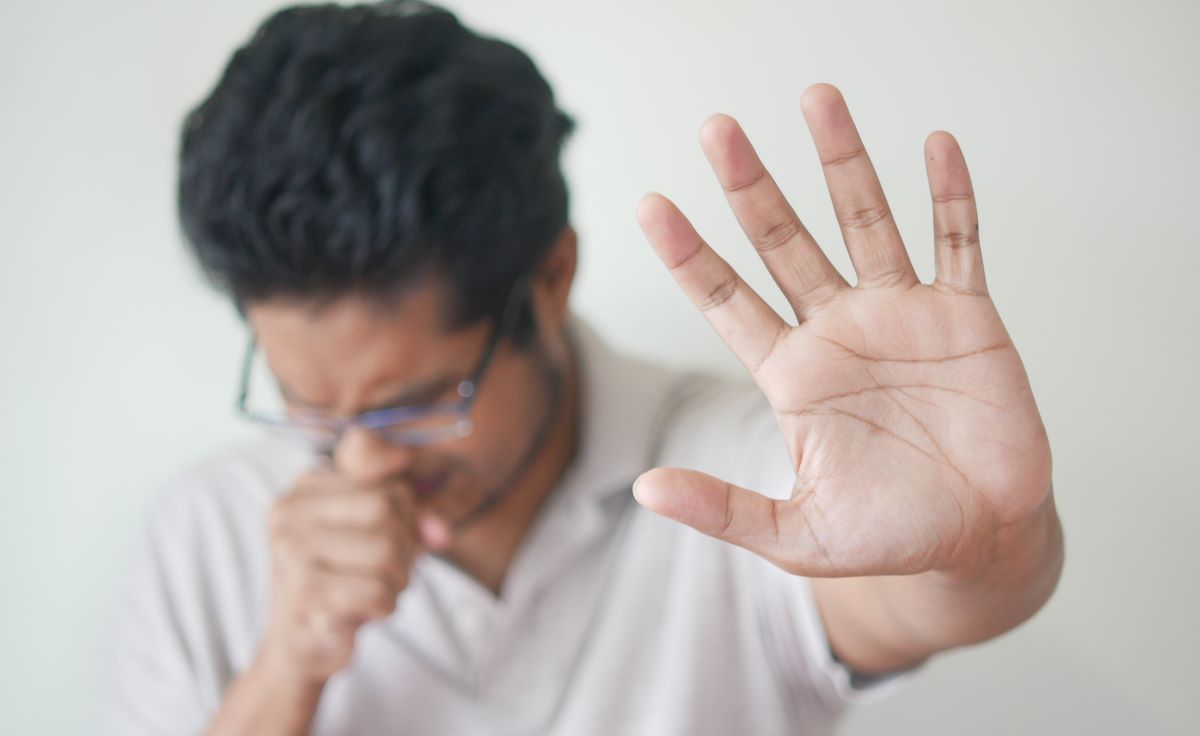Almost 96 million people in the US have had a COVID-19 infection, according to Sept. 26 data from the Centers for Disease Control and Prevention. Public health experts believe there is a severe under-count of infections, as there is no required reporting for home antigen tests.
COVID-19 vaccinations and updated boosters remain the most important strategy to prevent serious illness and death.
In the age of the Omicron variant, the majority of people infected with COVID-19 may experience symptoms, says Dr. Peter Chin-Hong, a professor of medicine at the University of California, San Francisco, who specializes in treating infectious diseases. Even people who are vaccinated and boosted may experience symptoms with their infection, he explains, although unvaccinated individuals are more likely to become severely ill.
In this FAQ, Dr. Chin-Hong explains how to manage a symptomatic COVID-19 infection.
What are some initial signs of a COVID-19 infection?
Dr. Chin-Hong: Initial signs of a COVID infection depend on a variety of factors. Most people — especially in the Omicron era — experience a sore or scratchy throat, fatigue, fever, nasal congestion, and sneezing. Others report cough, muscle aches, headache, and occasionally diarrhea.
If you are unvaccinated, immune-compromised, are older or not boosted and have trouble breathing about one week after the initial symptoms begin, this may be an indication of pneumonia. You should seek prompt medical attention.
Smell and taste abnormalities are less common with Omicron compared to earlier variants but are still possible.
Most symptoms last between 1-2 weeks, but some people may have symptoms for 2-3 months or longer, in a minority of patients with Long COVID.
The major symptom of a more severe infection is difficulty breathing with cough. If you are getting more short-winded or if you can’t walk as far without catching your breath a few days to a week after infection, you should seek medical attention. If you have a pulse oximeter at home and it is below 93% that may be another sign.
At what point should you take an at-home antigen test?
Dr. Chin-Hong: Take a home antigen test under the following conditions:

1.Within 3-5 days if you have a credible exposure (15 minutes within 6 feet if unmasked)
2.If you have any symptoms such as sore or scratchy throat, fatigue, fever, nasal congestion, sneezing, coughing, muscle aches, headache, or occasional diarrhea. It is important to repeat the antigen test at least once or twice within 24-48 hours (or do a PCR test) if you still have symptoms. Low amounts of virus early in infection can sometimes be missed by antigen tests.
If you are a parent or guardian and need to test your child, here are some tips to help young, squirmy children: hold the child in your lap while the test is being done; bring an iPad or show a video; explain to the child before (if possible) what you are going to do; have someone hold your child’s hands while the test is being done. Remember the test is quick!
How confident are you about a home-testing kit’s ability to detect the BA-5 subvariant?
Dr. Chin-Hong: I am very confident that the home test is accurate for BA-5, but the trick is not to give up if the initial test is negative and to repeat the test 1-2 times over the first few days of symptoms, or do a PCR test.
In addition, Omicron generally starts in the throat for many people so it may take some time to reach the nose which is being swabbed. The PCR test just needs a small amount of the virus around to turn positive which is why it may give a more accurate result sooner, but eventually the home antigen test catches up as more virus is being produced.
I would probably recommend a PCR test sooner rather than later if you want to find out as soon as possible (especially if you are living with elderly or immunocompromised folks) or if you are unvaccinated or need early therapy to lessen symptoms — such as an antiviral medication like Paxlovid or monoclonal antibodies — to help keep you away from the hospital.
What types of treatments are available for those who test positive for COVID?
Dr. Chin-Hong: Talk with your doctor about the treatment options that are appropriate for you.
I would definitely recommend Paxlovid if you are within the first 5 days of symptoms, or if you are unvaccinated with medical conditions, are older and unboosted, or immuno-compromised. Younger healthy patients may not benefit quite as much from an antiviral treatment and there may be a risk of COVID rebound. People with kidney issues or those who or have certain drug interactions may wish to seek an alternative therapy.
Monoclonal antibodies are good for people who need early treatment (as above) especially if you are immuno-compromised. It is given as a 1-hour infusion with 1 hour of observation. This is a good option if people cannot take Paxlovid because of negative interactions with other medications.
Remdesivir given intravenously for 3 days is another option for COVID-positive patients. The window for this treatment is from onset of symptoms to 7 days, which may give some people more time.
For people with mild symptoms, are there home therapies you would recommend?
Dr. Chin-Hong: Hydration is very important. Home therapies like warm chicken soup and tea, and honey (1 teaspoon if child is over 1 year) can help with symptoms like cough.
Should you exercise? How much rest should you get? And is it okay to continue working, albeit at home?
Dr. Chin-Hong: The current guidance for those recovering from COVID-19 is to wait for at least two weeks before resuming exercise and to do so gradually. Don’t push too soon or too hard as it may lengthen the time you have symptoms. It is important for your body to have enough rest to fully recover after COVID. If you have any questions, talk to your health professional.
What are your recommendations for returning to society? Would you recommend getting a negative test result first?
Dr. Chin-Hong: My advice is to follow official state guidance: isolate for a minimum of 5 days. If you are negative by a rapid antigen test at day 6 you can go out into the world. If you are still positive you should continue isolating and testing until day 10 (or sooner if you turn negative).
After day 10, I generally do not recommend testing unless you live with a vulnerable housemate (someone who is immunocompromised).
Per CDPH masking guidance, infected persons should wear a well-fitting mask around others for a total of 10 days, especially in indoor settings.
Lastly, remember it is important to get boosted and vaccinated to help protect against the worst outcomes of COVID-19.





